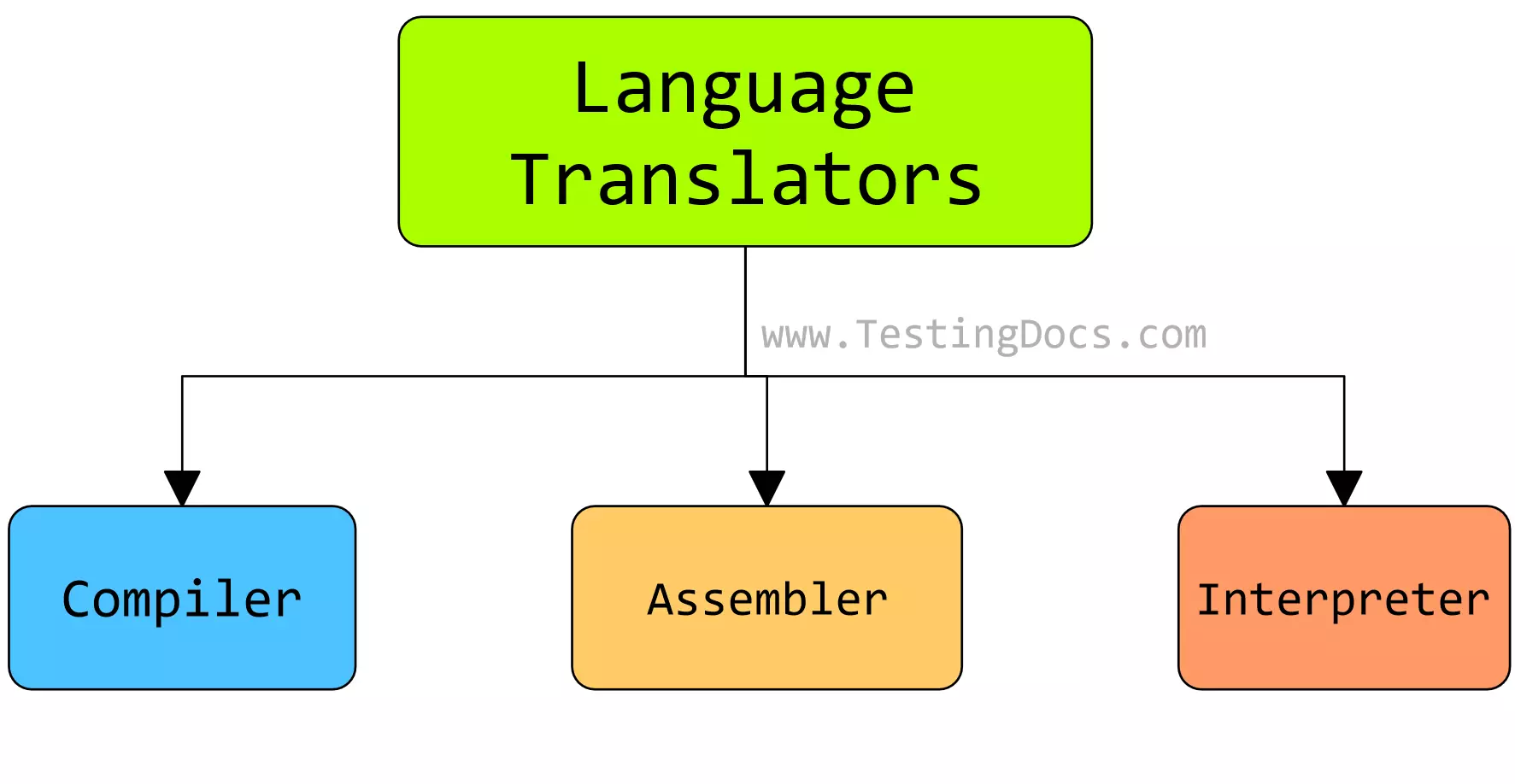Programming Language Translators
Overview
In this tutorial, we will learn about different programming language translators. The language translator program accepts and translates the source language program to the equivalent machine object program. These programs are also known as language processors.
Language Translators
Some of the language translators are as follows:
- Compiler
- Interpreter
- Assembler

Compiler
A compiler is a program that accepts programs written in a high-level language and translates them into equivalent assembly language or machine language programs. The program written by the programmer in a high-level language is called the source program. The source program contains English-like programming statements written in a high-level language.
Interpreter
An interpreter is a program that accepts interpretive language commands and directly executes the commands they denote. The method of translation is different from the compiler and interpreter. An interpreter operates by reading, interpreting, and executing the source code statement. On the other hand, The compiler translates the entire source program into the machine-level object program.
Assembler
An assembler is a program that accepts assembly language programs and translates them to equivalent machine language programs. Simple assemblers substitute machine codes for mnemonics, while complex assemblers can recognize macros and other symbols in assembly programs.
Other Tools
The other utility tools that are used to execute the computer program are:
Linker
A linker is a program that takes one or more object files generated by a compiler and combines them into a single executable file, library file, or other object file.
Loader
A loader is a program that loads the executable( generate by the linker) onto the main memory and prepares the executable code for execution by the computer.
—
C Tutorials
C Programming Tutorials on this website:








